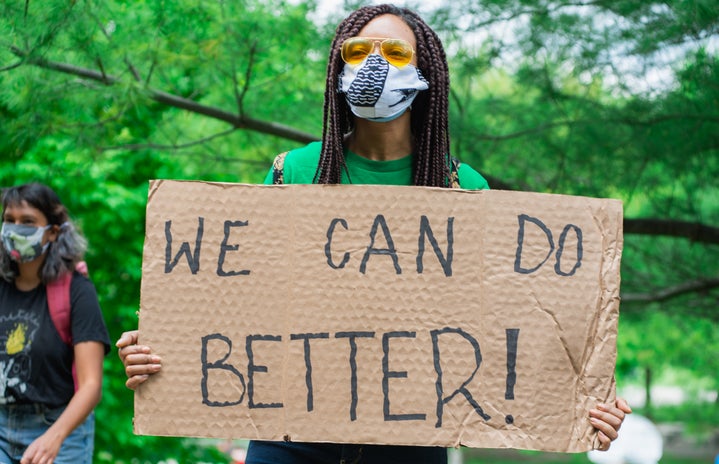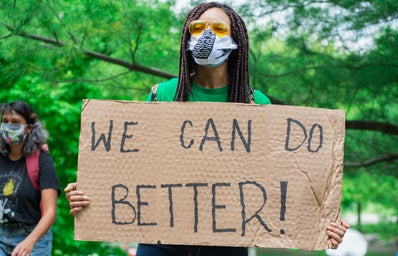At the time of writing this article, it has now been two weeks since the 7.8 magnitude earthquake struck Turkey and Syria, the most catastrophic natural disaster many of the two countries have seen in their lifetime. Just this week on the 21st of February 2023, a secondary 6.4 magnitude earthquake further shook the two nations, at a time when they are barely beginning to find their footing again. As I write this article, these disasters have cost over 44,000 people their lives, leaving millions more injured, homeless, internally displaced, and bodies still trapped under the rubble. Numbers too great to even comprehend.
With figures such as these, the urge to dissociate yourself from the news and block it all out is understandable, and to a certain extent, necessary. It’s easy to feel overwhelmed and helpless from images you see on the news, Twitter, or your Instagram and TikTok feeds. With so many harrowing images, videos, and a death toll that keeps on rising, comes the inevitable urge to just scroll past these countless stories and posts so as not to think about it. Out of sight out of mind. I understand – it is simultaneously heartbreaking and infuriating. Devastation on this scale for many of us is simply unfathomable, and the sense of hopelessness it leaves behind, feeling like there is nothing you can do to help, can force you to reach a breaking point. But just because it’s out of mind does not mean it’s not real, and does not mean there are not people still suffering.
In moments like these it’s important to stay aware of what’s going on, but also to take care of your own mental health. Don’t go down a rabbit hole drowning yourself in social media posts highlighting the negative. If you feel yourself getting overwhelmed and anxious, all perfectly reasonable reactions under the circumstances, then switch it off. It’s not healthy for anyone to be consuming this kind of content all day constantly. Despite this, that doesn’t mean we can just push the people of Turkey and Syria to the back of our minds, forgetting about them completely. There is still some light at the end of this long, dark tunnel. Keep a look out on social media for organizations online and on the ground, who are making a positive difference, showing how there is still some sense of shared humanity between us as civilians collect and distribute donations, clothing, and resources. We can’t ignore what’s happening in Turkey and Syria just because it makes us uncomfortable. These are not just trending headlines, and this is not a situation that will right itself in the short term. Your emotional discomfort is their new reality, despite being front page news or not.
Your feelings are valid, but rather than using them to justify keeping the news away, use it as motivation. We can’t control natural disasters, but we can try to control international response and efforts. Your despair, guilt, and desire to find a way to help but not quite knowing how, are all signs of your empathy. Don’t forget these feelings. Don’t forget the heartbreak and shock you felt upon hearing about the disaster, or the speechlessness after learning about numbers of those who lost their lives. Don’t forget the sense of outrage you felt upon witnessing photos of homes turned to rubble. In Turkey especially, there has been widespread criticism and outrage over the lack of earthquake-safe infrastructure, precautions which would have significantly minimized the extent of destruction caused and lives lost. Remember these feelings of injustice.
Just because this natural disaster occurred in the Middle East does not make it ‘normal’. Images of demolished buildings, mass graves, grieving families, and people living in tents are no stranger when it comes to news documentation on Syria in particular. This kind of constant news stream makes people complacent to their suffering, accepting it as inevitable. That’s the cyclical nature of the news: reporting on devastating conflict or disasters in the Middle East, a day of trending headlines, before moving on until the next tragedy occurs. But this, once again, has damaging consequences. When we start to accept these realities as ‘normal’ we turn our backs on those suffering, believing that it’s ‘just another day’, not comprehending the extent of their distress and the complacency of the outside world as a result.
Syria particularly has been ravaged to the bone by war that has lasted over a decade, leaving majority of the country in ruins and further crippled by sanctions, effectively isolating the country and people from the rest of the world. As a result, for the initial days after the earthquake, the most crucial time for locating survivors still trapped under the rubble, Syrian relief efforts lacked necessary life-saving tools, aid, and assistance. Images and videos began circulating of Syrians using buckets, shovels and their bare hands to try and rescue those still trapped. It was only on the 9th of February that the United States finally announced a 180-day lifting of sanctions on Syria to allow foreign aid and resources to enter the country. However, this meant that Syria did not receive urgent life-saving resource from the West until days after the earthquake. These are the kinds of headlines we can’t forget about when they’re not trending anymore. The desperation many in the international community felt for Turkey and Syria is not something we can forget about. We can’t prevent natural disasters, but there could have been better infrastructure standards in place in both countries, and greater aid and support outreach to Syria. We owe it to those who lost their lives, homes, and loved ones to not forget these failures, not stop talking about it, and not to forget them.
When news of this nature hits its typical for it to undergo a typical news cycle: headlines, countless social media posts and reposts, fundraising initiatives, until it eventually gets pushed lower and lower down the news chain of pressing events. But we can’t ignore what happened, and we can’t forget. The vast majority of us did not experience the quake; we weren’t there. We aren’t seeing the destruction and devastation it left in its wake live. Instead, watching it all from the comforts of our homes, safely tucked away from it all. We weren’t there, but we owe it to the people who were to not forget them. Even when the headlines stop trending, when the fundraising initiatives trickle away, this new reality for millions in Turkey and Syria does not change. This is their new reality. We have to get comfortable with our own discomfort to ensure they continue receiving life-saving aid and resources, and pressure to implement measures to avoid devastation on such a mass scale in future.


